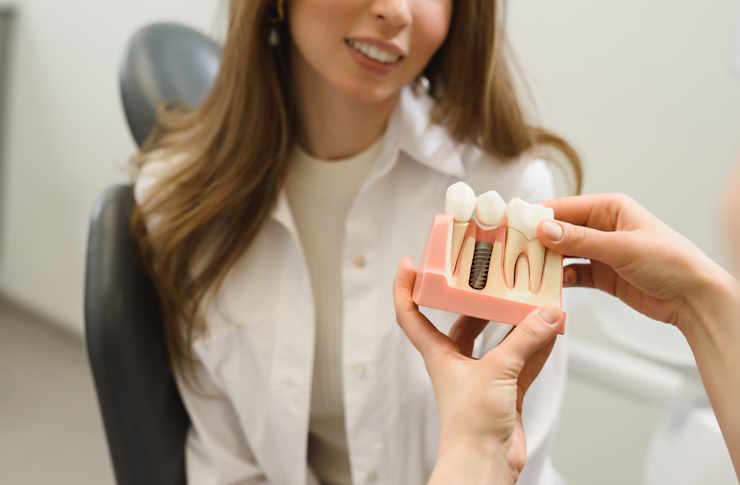Dental Implants — Your Complete Smile Restoration Guide
Discover how dental implants can transform your smile and oral function. This comprehensive guide explains who qualifies for implants, what the multi-stage procedure involves, recovery expectations, benefits over dentures and bridges, and practical care tips to maximize longevity. Learn about bone grafting, osseointegration, pain management, and common provider options to help you decide if implants are the right long-term tooth-replacement solution for you.

Who makes a good candidate for dental implants?
Most adults in generally good health can be considered for dental implants. Ideal candidates usually share these traits:
- Healthy gums without active periodontal disease
- Adequate jawbone volume and density to support an implant
- Consistent oral hygiene habits
- No medical conditions or medications that significantly impair healing
If you lack sufficient bone height or width, that does not necessarily rule you out. Modern bone grafting and augmentation procedures frequently allow patients with reduced bone to receive implants. Your dentist or oral surgeon will assess your medical history, oral health, and imaging studies to recommend the best path forward.
What happens during the dental implant process?
Dental implant treatment is typically completed in several planned phases:
- Initial consultation and treatment planning: A thorough exam, X-rays or CBCT scans, and a customized plan are created.
- Implant placement: A titanium (or other biocompatible) implant is surgically positioned into the jawbone.
- Healing and osseointegration: Over a period of about 3–6 months, the bone fuses to the implant surface.
- Abutment placement: Once integrated, an abutment is attached to the implant to support the restoration.
- Final crown or prosthesis: A custom crown, bridge, or denture is fabricated and secured to the abutment.
Total treatment time varies based on individual healing, whether extractions or grafts were needed, and the complexity of the case. Temporary restorations can be used so patients maintain appearance and function while healing occurs.
Is the implant procedure painful?
Most patients experience little to no pain during surgery because it is performed under local anesthesia (and sedation if chosen). Mild to moderate soreness, swelling, and tenderness are common in the days after the procedure. These symptoms are usually manageable with over-the-counter pain relievers, prescribed medication if necessary, cold packs, and short-term rest. Many patients report that recovery is easier than they anticipated and that discomfort diminishes within a few days to a week.
Key advantages of dental implants
Dental implants offer several important benefits compared with traditional dentures or fixed bridges:
- Look and function like natural teeth, often improving comfort and confidence
- Better chewing efficiency and clearer speech
- Help preserve jawbone by stimulating bone and preventing resorption
- Durable results — with proper care implants can last for decades or a lifetime
- Do not require altering adjacent healthy teeth, unlike conventional bridges
- Can significantly improve self-esteem and overall quality of life
Provider options and features to consider
Below are examples of types of providers and what they typically offer:
- ClearChoice Dental Implant Centers — Full-service implant treatment: One-stop centers offering coordinated care and advanced technology
- Aspen Dental — Implant consultations and placements: Nationwide availability with financing options for many patients
- Affordable Dentures & Implants — Budget-friendly implant solutions: Emphasis on same-day services and in-house labs
- Heartland Dental — Comprehensive implant services: Large network of affiliated practices providing implant care
- Western Dental & Orthodontics — Implant consultations and placements: Multiple locations and bilingual services in many offices
How to care for dental implants
Maintaining implants is similar to caring for natural teeth, and good oral hygiene helps ensure a long service life:
- Brush at least twice daily with a soft-bristled toothbrush
- Floss daily, paying attention to the tissues around the implant
- Consider an antimicrobial mouthwash if recommended by your provider
- Avoid smoking and limit alcohol — both can impair healing and increase failure risk
- Keep regular dental checkups and professional cleanings so your dentist can monitor implant health
With consistent care and routine dental visits, implants can provide an effective, long-term solution to tooth loss.
Summary
Dental implants have emerged as a reliable option for replacing missing teeth because they replicate tooth roots and support restorations that look, feel, and function naturally. Though the treatment requires planning and a healing period, modern techniques like bone grafting expand candidacy and improve outcomes. If you are considering implants, schedule a consultation with a qualified dental professional to review your options and create a personalized treatment plan.
This information is intended for educational purposes and is not a substitute for professional medical advice. Please consult a licensed dentist or healthcare provider for individualized recommendations and treatment.






